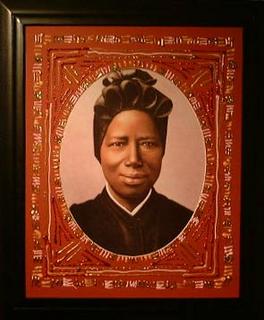
Italy in the 14th and 15 centuries, were milestone years when it came to artistic pursuit in all fields, paintings, sculpture, architecture and writings. These were the decades when Niccolo Machiavelli, Francesco Guicciardini wrote their famous books. Artists such as Leonardo da Vinci, Raffael Santi, and Michaelangelo Buonarroti would reach their best on the finest art ever produced.
And though artistically Italy flourished, when it came to politics it was the reverse as divisions created conflicts amongst the differing powerful dynasties. The most powerful and commercially prosperous Provinces in Italy at that time were Venice, Milan, Florence and Naples.
Some Italian Province's also had an ongoing dispute which led to outright war with the French but under the new French king Francis I a peace agreement would be signed, but like many other peace treaties it would not last.
Into this arena of great artistic accomplishments and diverse political machinations, was born in the year 1515 a baby boy who was named Philip Romolo Neri.
Though Philips father, Francesco Nero was related to the nobility he himself was not wealthy and had to work hard to provide for his growing family. The young Philip would be joined later by two sisters, unfortunately for the Neri family, their mother died while her children were very young.
The young Philip would be noted for his joy of life and sense of humour and because of his happy disposition his family nicknamed him 'Pippo'. He was much loved by his family and brought them all much happiness for to spend any time in company with the young Pippo meant a good time for all.
But due to the families financial struggles Philip was sent to San Germano to help a relative run his business. Though Philip was now a young man of 18 years, he was not known for his seriousness, but all this would change when Philip was to experience a mystical event, this would change the course of his life.
It was at this time that Philip left San Germano and travelled to Rome. And though impoverished Philip retained his sunny disposition which would help him when he found shelter with the Caccia family in Rome.
In order to be able to eat and sustain himself Philip became a tutor to the two sons of Galeotto Caccia, though both flourished under the tutorship of Philip who was a gifted teacher and able to bring out the best in these two young boys, which pleased their parents.
But even though Philips good heartedness would win him much admiration, he preferred to spend his free time in prayer and lived an austere life in private. This intense need for prayer led him to study both philosophy and theology as he felt a calling from God.
But once again Philip would surprise many by abandoning his studies, selling his books and what little he had to embark on a mission to help the people in Rome. For he could see the effect of political insecurities and also the proliferation of works of art and literature were having on the people of Rome.
So into this cynical environment Philip Neri worked to once again re-awaken the peoples love for God and the Church. He did not approach this mission with hell fire and brimstone but with his natural talent of good humour and compassion, mixed with a non judgemental and warm hearted disposition.
Philip also did not forget the sick and infirm and visited the hospitals to share the good news of Christ's love for his children. Many would stop and listen to Philips love for God and began in themselves to once again embrace the Faith which they had walked away from.
But through all this activity at nights Philip would retreat to his bedroom and spend many hours in prayer. It was during one of his prayers that Philip would experience another mystical experience, when he saw before him what looked like a globe of fire which then entered his mouth and swept down to his heart. Philip was swept up in such an ecstasy of experience that he begged the Lord, "Enough, enough, Lord, I can bear no more ".
Philip continued his work for the poor and with the help of Father Persiano Rossa, they began to gather around them laymen who would join them in their mission to help relieve the suffering of the poor, sick and elderly. A hospital would eventually be built called Santa Trinita, so that the poor and infirm had somewhere to go when sick.
The work that Philip Neri was doing truly impressed his confessor and upon being prompted Philip entered the Priesthood in 1551. Many were to be won over and through the Sacrament of Confession Father Philip's abundant kindness helped many to once again love Jesus and to trust their Lord and amend their lives.
Many who worked alongside Philip Neri also noted his immense humility and air of sincere sanctity which shone from Philips whole demeanour. For Philip though he practiced an austere life in private, kept up his natural talent to make others feel important and loved. He never lost his humour or to tease his friends and all he met in a kind and friendly manner.
The people of Rome came to love Fr. Philip Neri and many people both poor and noble sort his advice, Philip never turned anyone away. Through his love of God and his natural ability to make others feel appreciated, and with a good dose of good humour Philip achieved much more than the long faced ascetics ever could.
Philip was a long term friend of St. Ignatius and of Popes Gregory Xlll and Clement Vll who all visited Philip for advice and to converse with such a spiritual giant.
Philip Neri died in 1595.
St. Philip Neri was canonised in 1622 by Pope Gregory XV.
Peace of Christ to ALL
Copyright © 2005 Marie Smith. All rights reserved.

